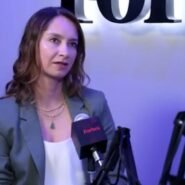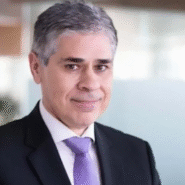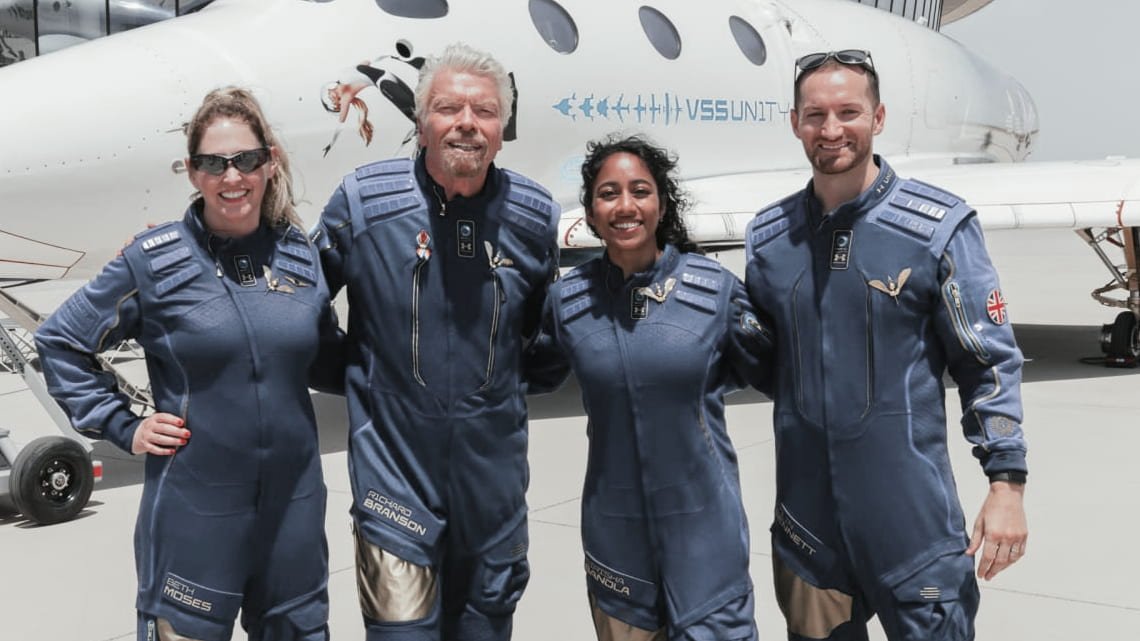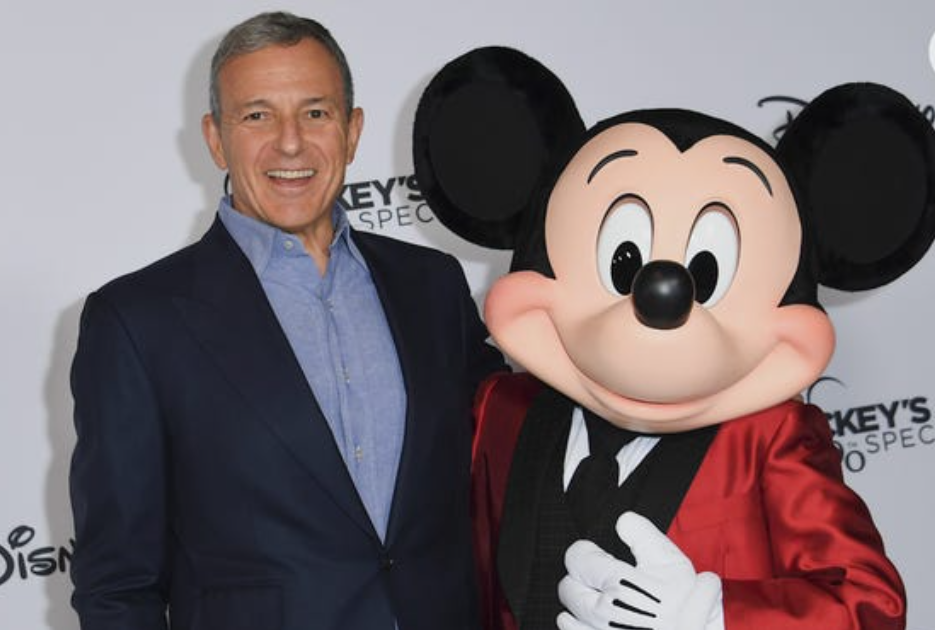Four leadership lessons from Richard Branson when winning the multibillion-dollar space race, as he made history by becoming the first billionaire to go to space.
Sir Richard Branson made history. He became the first billionaire to reach the edge of space in his own spacecraft, beating Jeff Bezos from Amazon in this achievement by only nine days.
Branson joined the crew of Unity 22 from his company Virgin Galactic on its mission from New Mexico to the stratosphere, the Earth’s upper atmosphere.
He did not cross the Kármán Line, which is the point 62 miles above Earth that is officially considered the beginning of space.
On board, Branson said that reaching zero gravity and the edge of space was “the experience of his life,” according to the Financial Times.
Branson has been talking—and competing with Bezos—about space tourism and commercial spaceflights since the early 2000s.
While on board the flight, Branson added: “Congratulations to all our wonderful people at Virgin Galactic and their 17 years of hard, hard work to get here.”
It is believed the billionaire has invested more than 1 billion dollars of his personal fortune into Virgin Galactic; according to Forbes, Branson has a net worth of 5.9 billion dollars.
Despite all the obstacles, including a 2014 accident in which a test pilot died when a spacecraft broke apart, Branson has remained laser-focused and continued to lead and motivate the Virgin Galactic team to accomplish this mission in 2021.
He, along with Bezos and Elon Musk from Space X, has encouraged greater investment, especially through SPACs, in space technology startups such as Planet Labs, Satellogic, Rocket Lab, and Spire Global.
So, what can leaders in any industry learn from Branson’s distinctive leadership style that has enabled his impressive business success (including this groundbreaking space flight) over the last five decades?
Be a visionary leader with ideas and values
At age 20, in the 1970s, Branson founded the Virgin Group. The company began with Virgin Records, and quickly entered the transport sector with Virgin Atlantic and Virgin Rail in the 1980s and 1990s.
Since the 2000s, Virgin has also dominated the telecommunications sector through Virgin Media, and then Branson aimed toward space travel and tourism starting in 2004, as well as other sectors such as rewards through Virgin Experience Days and fitness through Virgin Active.
It almost feels as if Branson and Virgin have touched virtually every sector in some way, and one of the main pillars of the 400 companies that now make up the Virgin Group is Branson’s vision and values.
In a 2014 interview with Forbes, he said:
“Virgin’s values are and will always be the same: to change the rules of the game and challenge the status quo by providing a truly useful product or service.”
Branson adds in a recent blog post about his journey to the edge of space: “At Virgin we’ve always taken pride in our ability to adapt to the needs of the business while keeping our team and our customers at the heart of what we do.”
“It’s amazing how far an idea can take us, no matter how extravagant it may seem at first.”
Branson is very clear that the principle is that Virgin does not study its competitors, but aims to be a force for good and focus on what is missing in the markets in which it operates, whether space, telecommunications, or transportation.
Of course, the company doesn’t always get it right—just think of the 2018 debacle around the bailout of Virgin Trains and its partner company StageCoach—but that remains Branson’s mission with Virgin.
Finding the right talent and delegating is key
However, another central part of Branson’s values is being a democratic and collaborative leader who brings in experts to delegate responsibilities to.
He has been quoted as saying: As much as it takes a strong personality to build a company from scratch, you also have to understand the art of delegation.
He previously told the Telegraph: “I’ve always believed in the art of delegation, in finding the best people possible for Virgin and giving them the freedom and encouragement to thrive.”
“If you’re not always there, you force other people to take the lead, which in turn improves their own leadership skills, boosts their confidence and strengthens your business.”
He also stated: “I have to be good at helping people run the individual businesses, and I have to be willing to step back. The company must be ready so that it can continue without me.”
However, to do this, Branson gets involved in the process of hiring executives and managers at Virgin, especially because he believes that his charisma and passion for what he does is what helps him find other people committed to the company’s missions.
Specifically, he likes to hire in areas where he knows he is weak to ensure that his leadership team has complementary knowledge and skills.
When hiring, he prioritizes personality over resume or qualifications and notes that interpersonal skills are incredibly important.
“Someone who has multiple degrees in their field is not always better than someone with broad experience and a wonderful personality,” Branson noted.
Value and empower your people
Branson shared how he treats his team like family. Speaking with UNLEASH CEO Marc Coleman, he revealed his to-do lists, including tactics for hiring, unlimited leave, and attention to detail.
“I like to recruit and promote within the company because I know their strengths and weaknesses,” he said. “And I like to find people who are good with people.” Leadership, humanity and authenticity in an interstellar CEO—amazing!







